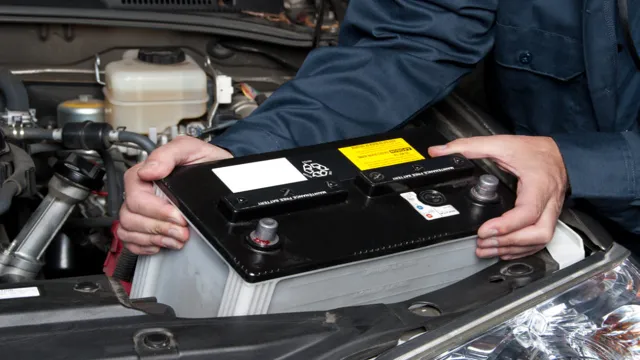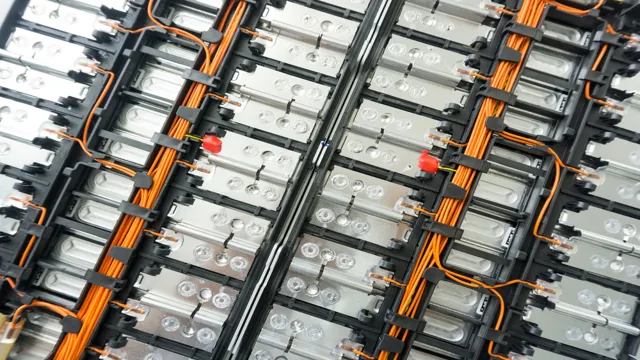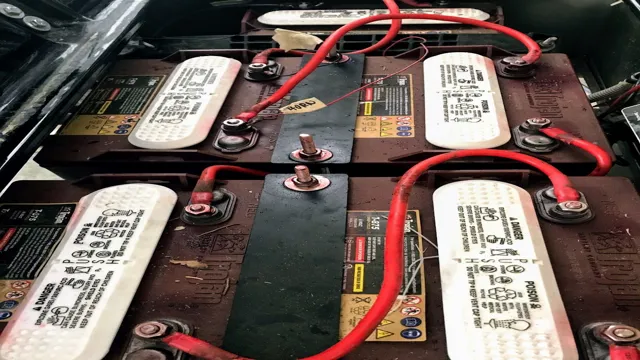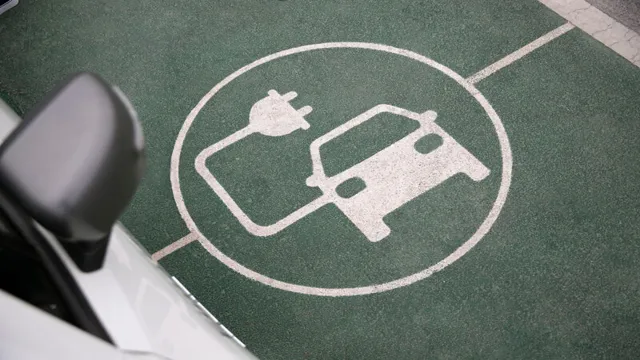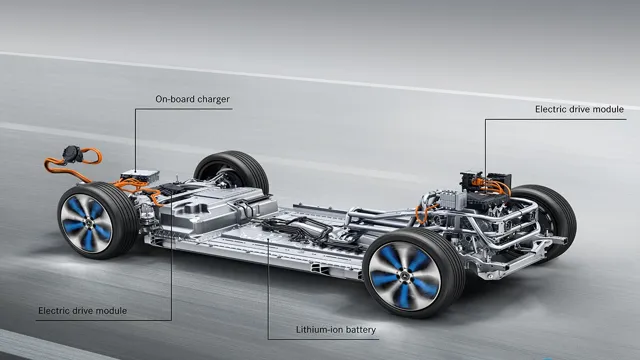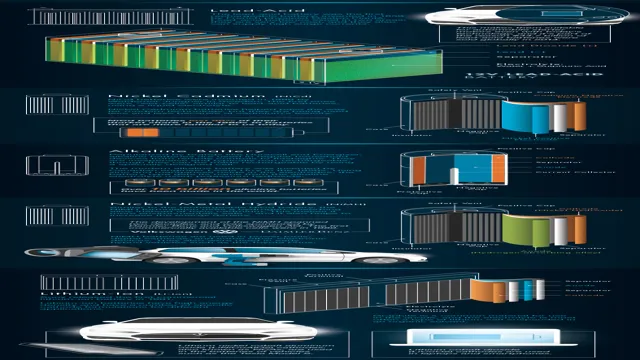Top 5 Causes of Car Electric Problems that could be Draining your Battery
Have you ever experienced your car battery constantly draining? It’s frustrating and can leave you stranded in inconvenient places. The culprit may be car electric problems, which can cause your battery to lose its charge. These problems can come from a variety of sources, ranging from simple issues like leaving your lights on to more complex problems with the electrical system of the car.
If you’re facing this issue, you’re not alone. Many people encounter this problem daily, and it’s essential to understand what is causing it so you can fix it and prevent it from occurring again in the future. In this blog, we’ll discuss some of the most common car electrical problems that cause your battery to drain and what you can do to resolve them.
Common Causes
Car electric problems draining the battery can be caused by a variety of issues. One common cause is a faulty alternator, which fails to charge the battery while the engine is running. This results in a drained battery, leaving your car unable to start.
Another potential culprit is a parasitic drain, which refers to a small but constant draw on the battery’s power, even when the car is turned off. This can be caused by a malfunctioning component, such as a faulty relay or switch, or even a prolonged period without starting the car. Additionally, corroded or loose battery connections can prevent the battery from recharging, leading to a dead battery.
To avoid electric problems with your car battery, it’s important to schedule regular maintenance checks with a trusted mechanic. This can help identify and address issues before they become major problems, extending the lifespan of your car battery.
Corroded Battery Terminals
Corroded battery terminals can cause a lot of inconvenience, costing you time and money. It is essential to know the common causes of corroded battery terminals to prevent this problem from happening. One of the leading causes is moisture buildup, as it leads to the formation of acid that can corrode the terminals.
Extreme temperatures can also cause battery corrosion, especially in extreme hot or cold weather. Another common cause is age, as batteries deteriorate over time, causing the terminals to corrode. Finally, overcharging can cause the battery to generate heat that can damage the surface and corrode the terminals.
It is therefore crucial to keep your battery in good shape by cleaning the terminals regularly and checking the electrolyte levels.
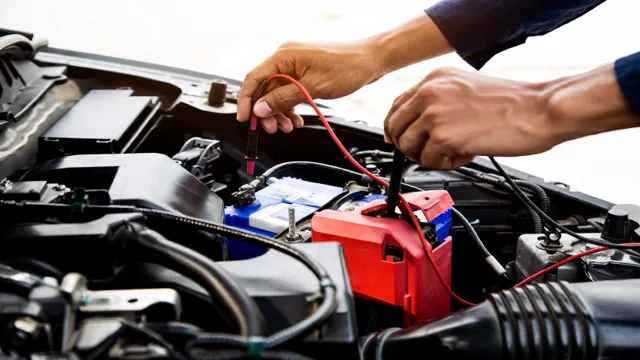
Faulty Alternator
A faulty alternator can be a real headache for car owners, causing everything from dimming lights to an engine that won’t start. There are several common causes of a faulty alternator, including worn out brushes, a damaged stator, or a malfunctioning voltage regulator. When the brushes in an alternator wear down, they can no longer move freely, causing the alternator to stop generating electricity.
A damaged stator can also impact the performance of the alternator, leading to issues with charging the battery. The voltage regulator can also be responsible for a faulty alternator, as it controls the amount of voltage that is sent to the battery. Regardless of the cause, it’s important to have a faulty alternator diagnosed and repaired quickly to avoid further damage to your vehicle.
Parasitic Draw
Parasitic draw, or the power loss in a vehicle due to a component or system that’s continuously draining power from the battery, is a common problem for car owners. The most common causes of parasitic draw are faulty alternators, damaged battery cables, and malfunctioning electrical systems. A faulty alternator can cause a parasitic draw by not charging the battery correctly.
Damaged battery cables can also create a parasitic draw by causing a short circuit or high resistance in the wiring. Malfunctioning electrical systems, such as interior or exterior lights and power accessories, can also cause a parasitic draw when left on or when there’s a short circuit in the system. By checking for these common causes of parasitic draws and properly maintaining the vehicle’s electrical system, car owners can reduce the risk of power loss and prolong the life of their battery.
Symptoms of a Drained Battery
Car electric problems can be frustrating, especially when they continuously drain your battery. There are several symptoms that indicate a drained battery in your vehicle. The most common sign is when your car won’t start or struggles to start.
You may hear a clicking sound when you turn the key or notice dimming lights when you try to start the car. Another indication of a dying battery is if the accessories, such as the radio and air conditioning, aren’t working properly or tend to go on and off. Additionally, a discharged battery may cause your engine to idle unevenly or stall.
If you’re experiencing any of these symptoms, it’s best to have your car’s battery and electrical system checked by a professional. You don’t want to end up stranded on the side of the road with a dead battery. Addressing the issue early on can save you time and money in the long run.
Dimming Lights
If you’ve ever experienced dimming lights on your vehicle, it’s likely you have a drained battery. This symptom can be caused by many issues, but a drained battery is the most common culprit. When your vehicle’s battery is low, the electrical system becomes compromised, which can cause issues with your lights, radio, and other components.
Not only is it frustrating to have dimming lights, but it can be dangerous when driving, especially at night. If you notice your lights flickering or dimming, it’s important to seek reliable repair services immediately. A certified mechanic can run tests to diagnose the issue, which may include checking the battery, alternator, and other electrical components.
Don’t wait until you’re stranded on the side of the road to address the problem – take action as soon as possible to ensure your safety and prevent costly repairs down the road.
Trouble Starting the Car
Have you ever experienced trouble starting your car? It’s frustrating, isn’t it? One of the most common reasons for this issue is a drained battery. There are several symptoms that can signal a depleted battery, such as dimming headlights, flickering dashboard lights, and a slow engine crank. It’s important to remember that a typical car battery has a lifespan of 3 to 5 years, but certain factors can shorten this time frame, such as extreme weather conditions, frequent short trips, and leaving the lights on.
If you suspect a drained battery, you can test it with a multimeter or have a professional mechanic perform a diagnostic test. Don’t ignore the warning signs and always keep jumper cables in your car, just in case.
Flickering Dashboard Lights
If your car’s dashboard lights are flickering, it’s possible that your battery is drained and in need of replacement. This can happen for a number of reasons, including leaving your lights or radio on for too long, or simply neglecting to drive your car regularly. Symptoms of a drained battery may also include difficulty starting your vehicle, dimming headlights, and a weak or stuttering engine.
It’s important to address a drained battery as soon as possible, as it can lead to more serious problems down the line. Think of your car’s battery like a heart – if it’s not working properly, the entire system can be affected. If you suspect your battery may be drained, it’s best to have it checked by a professional who can diagnose the problem and recommend the best course of action.
Remember, regular maintenance is crucial to keeping your car running smoothly.
Prevention Tips
If you’re experiencing car electric problems that are draining your battery, there are some steps you can take to prevent it from happening again. First, it’s essential to get your vehicle serviced regularly to ensure that any underlying problems with your electrical system can be identified and repaired promptly. It’s also a good idea to check for any loose wiring or connections that could be causing a drain on your battery.
Another preventative measure is to invest in a battery analyzer, which can help you identify any potential issues before they become a significant problem. And if you’re still struggling with power drainage after these steps, consider having a professional mechanic conduct a deep-cycle battery test to ensure that your battery is functioning at optimal levels. By taking these preventative steps, you can extend the life of your vehicle’s electrical system and avoid the headache of an unexpected power outage.
So stay proactive and don’t let car electric problems put you on the side of the road with a dead battery.
Regular Battery Maintenance
Regular battery maintenance is crucial to ensure that your vehicle runs smoothly and efficiently. A dead battery can cause a lot of inconvenience, so it’s important to take preventive measures to avoid any mishaps. Firstly, keep your battery terminals clean and free from any corrosion or build-up.
Use a wire brush to scrape off any dirt or rust, and wipe it clean with a cloth. Secondly, ensure that the battery is securely fastened in its tray. Vibrations from a loose battery can cause damage and wear down the terminals.
Thirdly, make sure that your battery is charged properly. Keep your vehicle running regularly, especially during long periods of inactivity, to maintain its charge. You can also use a battery charger to keep it topped up.
By following these prevention tips, you can extend the life of your battery and avoid any unexpected breakdowns on the road. So, take care of your battery, and it will take care of you!
Identifying and Fixing Electrical Issues
When it comes to electrical issues, preventing them is always better than fixing them. One of the easiest ways to prevent electrical problems in your home is to conduct regular inspections of all your electrical devices and wiring. Checking for frayed cords, loose connections, and damaged outlets can help catch potential hazards before they turn into full-scale problems.
Using surge protectors is also a great way to safeguard your appliances and electronics from any electrical surges that may occur. Additionally, avoiding overloading circuits and not using cords that are too long for your needs are other ways to prevent electrical issues from happening. By taking the time to conduct simple inspections and being mindful of your electrical usage, you can significantly reduce the likelihood of encountering electrical problems in your home.
Conclusion
In the world of car electric problems, a battery drain is like an unexpected guest that overstays their welcome. It’s frustrating, inconvenient, and often leaves you scratching your head in confusion. Whether it’s a faulty alternator, a parasitic draw, or simply forgetfulness about turning off your headlights, a battery drain can quickly turn a smooth ride into a bumpy ride.
So next time you hear that ominous click-click-click from under the hood, remember to stay calm, assess the situation, and maybe invest in some handy jumper cables. After all, a little bit of preparation can go a long way in keeping your car cruising smoothly down the road of life.”
FAQs
What are common car electric problems that can drain your battery?
Some common electric problems that can drain your car battery include a faulty alternator, a parasitic draw, bad wiring, and a dead battery cell.
How can I prevent my car battery from draining due to electrical problems?
You can prevent your car battery from draining due to electrical problems by regularly checking your battery and charging system, fixing any worn or damaged wiring, reducing the use of electrical components, and disconnecting the battery when your car is not in use for long periods.
Can a bad battery cause electrical problems in my car?
Yes, a bad or weak battery can cause electrical problems in your car since it affects the voltage and current flowing through the electrical system. This can lead to issues like dim headlights, slow cranking, and even complete electrical failure.
How can I diagnose if my car battery is being drained by electrical problems?
You can diagnose if your car battery is being drained by electrical problems by using a multimeter to measure the voltage across the battery terminals when the car is off and on. If there is a significant drop in voltage when the car is off, it indicates a parasitic draw or other electrical issues.
